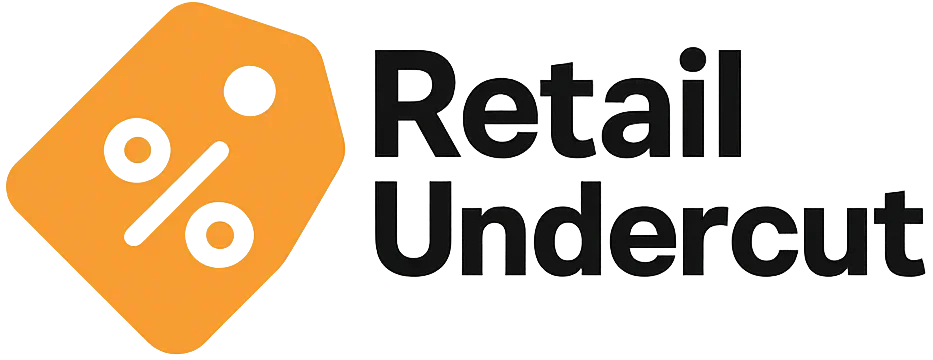At RetailUndercut, we’ve seen a massive shift in how people manage their health. With more workouts happening at home or on the go, fitness apps have become the new personal trainers. Whether you’re tracking calories, building muscle, or just trying to move more, the right app can transform your fitness routine without the bulk of gym equipment or a recurring membership fee.
Our team dug deep into what’s new and what’s still going strong in 2025. We’ve tested dozens of apps across platforms, consulted real user feedback, and evaluated which ones deliver real value based on functionality, ease of use, and personalization. Here are 10 fitness apps we believe are must-haves this year.
MyFitnessPal
A long-time leader in fitness tracking, MyFitnessPal remains relevant in 2025 thanks to its clean interface, barcode scanning, and deep food database.
Features
- Tracks calories, macros, and exercise
- Syncs with major fitness wearables
- Custom meal plans
Pros
- Massive food database
- Easy to log meals and workouts
- Supports goal-based planning
Cons
- Some premium features require subscription
- Interface hasn’t changed much
Best For
Those looking to manage their weight or build better eating habits.
Fitbod
This app shines when it comes to strength training. Fitbod uses AI to create custom workouts based on your past sessions, equipment, and goals.
Features
- Smart workout planning using AI
- Adjustable routines based on your gym setup
- Tracks sets, reps, and rest time
Pros
- Intuitive interface
- Great for beginners and advanced users
- Continues evolving with your progress
Cons
- Strength-focused; less helpful for cardio
- Full features behind paywall
Best For
People building muscle with minimal guesswork.
Nike Training Club
Nike’s free training app offers hundreds of workouts led by professional trainers and athletes. It’s ideal for anyone who wants guidance without a pricey subscription.
Features
- Full-body workouts from 5 to 60 minutes
- Categories like yoga, HIIT, strength
- Wellness guidance including nutrition and sleep tips
Pros
- Free to use
- Professionally designed routines
- Balanced wellness approach
Cons
- Limited tracking and customization
- App can feel cluttered at times
Best For
Users who want structured workouts without cost.
StrongLifts 5×5
If your goal is to get stronger without a complicated routine, StrongLifts 5×5 is a timeless program now equipped with useful tracking tools.
Features
- Based on compound lifts: squat, bench press, deadlift
- Auto-calculates weights for each session
- Tracks progress and rest times
Pros
- Great for beginners and busy lifters
- Simple and goal-driven
- Tracks progressive overload accurately
Cons
- No cardio or variety-based routines
- Only supports the 5×5 format
Best For
Beginners focusing on strength without fluff.
Centr by Chris Hemsworth
This one caught the RetailUndercut Team’s attention for combining fitness, nutrition, and mindfulness. Backed by a celebrity team, it’s surprisingly well-rounded.
Features
- Celebrity trainers and chefs
- Meal plans, meditations, and HIIT sessions
- Integrates training with mental wellness
Pros
- Visually stunning and motivating
- Offers something for every fitness level
- Great for lifestyle change, not just workouts
Cons
- On the pricier side
- Some workouts may require equipment
Best For
Users looking for a complete wellness ecosystem.
Jefit
Designed for gym-goers, Jefit helps track strength workouts in great detail. It’s loaded with workout plans and customizable logging features.
Features
- Over 1400 exercises
- Community and progress sharing
- Body stat tracking
Pros
- Excellent for bodybuilders and weight trainers
- Easy to compare routines and progress
- Desktop and app integration
Cons
- UI feels slightly outdated
- Overwhelming for casual users
Best For
Detailed strength training tracking.
Freeletics
Freeletics focuses on bodyweight workouts that adapt to your fitness level. Its AI coach adjusts based on performance and feedback.
Features
- Personalized AI training
- No equipment needed
- Motivational audio coaching
Pros
- Ideal for home and travel
- Minimalist approach
- Includes mindset coaching
Cons
- Subscription required for full experience
- Not ideal for lifting enthusiasts
Best For
Anyone working out without access to a gym.
8fit
This app blends quick workouts with meal planning. It’s great if you’re focused on lean muscle and overall body composition.
Features
- Quick HIIT-style workouts
- Personalized meal plans
- Progress tracking
Pros
- Efficient for busy users
- All-in-one health focus
- Easy to follow
Cons
- Requires subscription
- Limited depth for serious training
Best For
Those looking to lose weight and eat smarter.
MapMyRun
Ideal for runners or walkers who want GPS-based insights. It offers detailed maps, routes, and performance tracking.
Features
- Real-time pace and distance tracking
- Syncs with wearables
- Tracks runs, walks, cycling
Pros
- Great GPS accuracy
- Route history and recommendations
- Connects to Under Armour shoes
Cons
- Designed more for cardio than strength
- Free version has limited insights
Best For
Outdoor runners and walkers.
Apple Fitness+ (Bonus Pick)
For those in the Apple ecosystem, Fitness+ offers seamless integration with the Apple Watch and iPhone.
Features
- Guided workouts with real-time heart rate
- Categories from dance to strength
- Integration with Apple Health
Pros
- Smooth user experience
- Real-time metrics during workouts
- Excellent production value
Cons
- Apple-only
- Monthly subscription needed
Best For
Apple users wanting a guided, data-rich experience.
Final Thoughts
There’s no one-size-fits-all when it comes to fitness apps. Whether you’re weight training, running outdoors, or rebuilding healthy habits, 2025 offers something for everyone. The RetailUndercut Team encourages you to try a few and see which ones keep you engaged.
Find your ideal fitness companion and check current pricing or app store ratings today.



